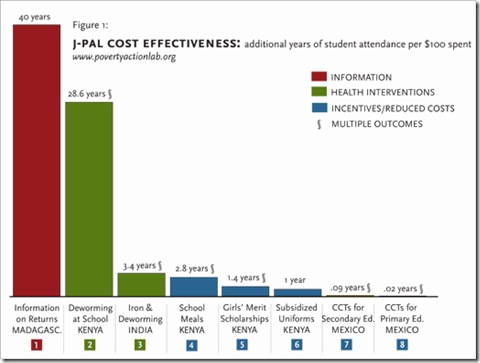So yesterday was the last day of this year’s training week for JPAL and IPA staff based in Africa. I’m going to be starting in September as the IPA Communications Coordinator (professional blogger?!) based in New Haven, so this was a great opportunity for me to meet a bunch of the field and head office staff, and learn a bit more about how JPAL and IPA actually conduct an evaluation.
Things I have learned:
- The phrase for “gamble” in Liberian English is to “put it in the hole.” Which apparently makes for some entertaining interviews with youths about their appetite for risk.
- Limuru, Kenya, is COLD!
- People can go to great lengths to get a drink. (but this is OK).
- IPA staff are awesome. Everyone is fun, clever, and motivated, and are all total data-geeks. My kind of people.
- Oh yeah, and how to conduct a randomised evaluation.
Here is my ultra-condensed summary.
Day 1: Why randomise anyway? (Because if you care about measuring the impact of your project - this is by far the best way)
Day 2: How to use STATA. (just spend a few hundred hours learning to code)
Day 3: How to design an evaluation, and how to manage data collection in the field. (what are you randomising and why? how do you manage the logistics in the field)
Day 4: Data entry and project management.
Day 5: Ethical and privacy issues, dealing with research problems, and budgeting (I totally rocked the budgeting session)
Day 6: Bringing it all together: presenting a complete project design from start to beginning.
If you are interested, all of the training materials are available on the MIT website, including videos, lecture notes, case studies and exercises.
The only thing not included is the trip to Lake Naivasha to walk amongst the zebra and giraffe. For that, you might just have to go and sign up…

